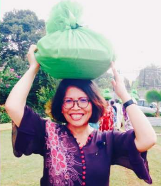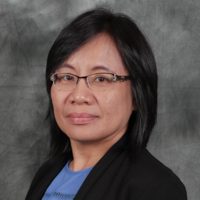Session 5: Invited Talks
Indigenous Communities, Technology, and Sustainability Twenty-Three Years as a Service Learner
In 1998 I boarded a 20-seat de-Havilland Twin Otter in Miri, Sarawak, Malaysia, bound for Bario; a remote and isolated highland community in what is now designated the Heart of Borneo. With no conception of what lay ahead, my plan was to test the hypothesis that the internet could be useful to the residents. After two decades of observation, testing and data collection, it is reasonable to conclude that the hypothesis can be accepted. Beyond that though, the encounter turned into a life-affirming experience with ramifications that extend far beyond those pristine rainforests and serene communities. Having discovered that their cultures and lifestyles have far more to offer the rest of us than our technology can provide to them, the new hypothesis connects indigenous peoples all over the world with the global imperatives for a greater respect for the environment and paradigms for development and consumption that are truly sustainable. Fortunately, it isn’t necessary now to devote two decades of scholarship to discover this for yourself. Service Learning, in the form in which it is operated in the Heart of Borneo, provides much the same exposure through a carefully curated process combining formal education with immersive community engagement. It changed me; it can change you.
About the Speaker

Dr Roger W. Harris gained his PhD in Information Systems from City University of Hong Kong in 1997 and soon after joined UNIMAS to promote the use of Information and Communication Technologies for poverty reduction and rural development. He instigated the eBario project that introduced computers and the internet to the remote and isolated Kelabit community in Sarawak and facilitated the community towards making use of them for local development. The project went on to receive multiple awards and ultimately led to the formation of the Institute of Social Informatics and Technological Innovations in UNIMAS, in which Dr Harris holds the position of Visiting Professor. Since 2001, he worked as an independent consultant providing services to Asian governments and development agencies, including the UN, World Bank, International Telecommunications Union, USAID and the Asian Development Bank. He has worked on assignments for project design and implementation, evaluation, policy and strategy development, knowledge sharing and research across Asia, in; Bangladesh, Cambodia, China, India, Indonesia, Laos, Malaysia, Mongolia, Nepal, Papua New Guinea, Philippines, Sri Lanka, Thailand and Vietnam. Throughout, Dr Harris maintained his association with Bario and the Kelabit community; initiating the biennial eBario Knowledge Fair in 2007 (now the eBorneo Knowledge Fair), establishing Radio Bario in 2011 as Malaysia’s first community radio station and acting as an advisor to FORMADAT (Forum Masyarakat Adat Dataran Tinggi Borneo) - The Alliance of the Indigenous Peoples of the Highlands of Borneo. In 2017, he was bestowed honorary membership of the Kelabit community with the name of Gatum Paran. Dr Harris was the founding editor and current co-Editor-in-Chief of the Electronic Journal of Information Systems in Developing Countries.
Service-Learning and Community Protocol for Diverse Knowledge System
Drawing from community-oriented research activities and experiences, this paper provides praxis guidelines for service-learning partnerships, which over the last two decades, has gained prominence as a vital educational force within a diverse knowledge system. That is, service learning is increasingly seen to be an important means for universities and colleges to become more society-serving. Important that may be, communities are riven with protocols which need to be considered when collaborating with remote communities for service learning. This paper aims to highlight the significance of community protocol as part of frameworks for community-based service-learning in remote and rural places.
About the Speaker

Poline Bala obtained a B.A in Southeast Asian Studies from the Faculty of Arts and Social Sciences, University of Malaya in 1994. She graduated with an M.A in Asian Studies from Cornell University, US in January 1999. In May 2008 she graduated with a PhD in Social Anthropology from University of Cambridge, UK. . She is now the Director of Institute Borneo Studies and an Associate Professor at the Faculty of Social Sciences and Humanities, University Malaysia Sarawak (UNIMAS). In the past, she has taught ASEAN Politics, Modern Diplomacy: Theory and Practice, and a course on International Organizations, and also Modern Political Thoughts. Currently teaching Sociology of Development, Globalisations, and Research Methods. Her areas of interest and research include examining the impacts of political boundary lines on the formation of cultural, political and economic units at the border regions of Borneo. Specifically dealing with the formation of national identities at border areas and how the formation of national identity effects every day interactions, kinship relations and economic relations between communities at the frontiers of international boundaries. In her book, Changing Borders and Identities in the Kelabit Highlands, Poline studies the significance of the international border in creating a growing chasm between the Sarawak Kelabit and their Berian kinsmen in East Kalimantan. Over the past 15 years Poline also has developed an interest in two interrelated fields: society-technology relationships and development-technology relationships. This especially relates with how society and social values shape the way in which technology, specifically Information Communication Technologies (ICT) and social media, affects our lives, the roles of ICT on development activities, the social change that is connected to the application and use of ICT and the outcome of the development activities, and how they occur. This interest stems mainly from her roles as one of the pioneers of the world-renowned eBario initiative in the Kelabit Higlands that sought to explore the socioeconomic potentials of the new information communication technologies amongst rural and remote communities. Because of the impact of eBario, in 2006 - 2010 she was part of a research team from UNIMAS, which was instrumental in the national roll out programme of Rural ICT to other 5 remote places in Malaysia. In 2012, building on their strength in participative engagement with rural communities, under Poline’s leadership, her team was engaged by the Economic Planning Unit at the Prime Minister’s Department to introduce and implement Telecentre Programme amongst Orang Asli West Malaysia (TPOA). All these engagements boil down to Poline’s keen interest in societal issues surrounding “small people” at the margins of technological advancement and innovation.
Moderator

Associate Professor Dr. Jane Labadin, Universiti Malaysia Sarawak





